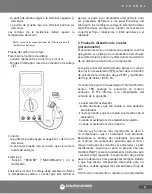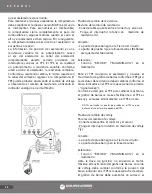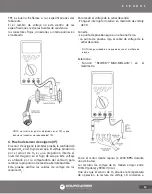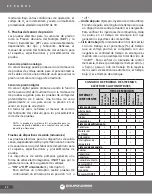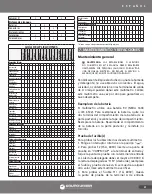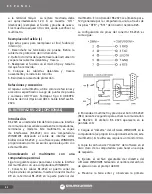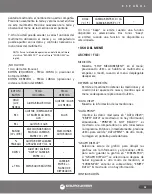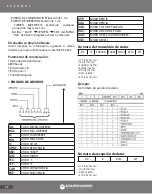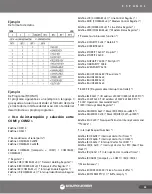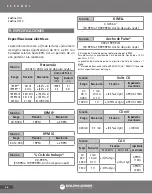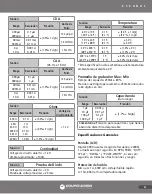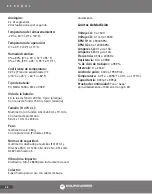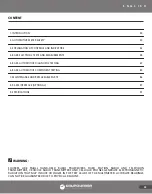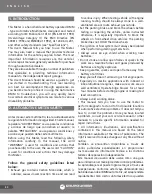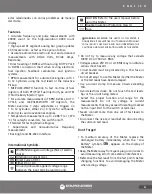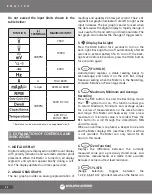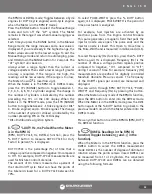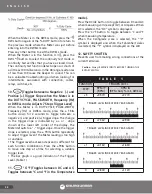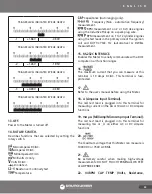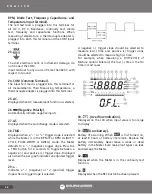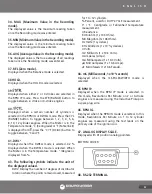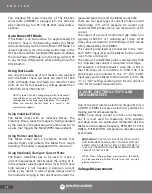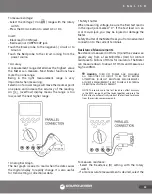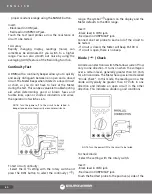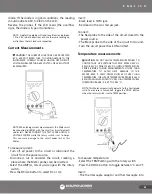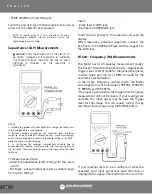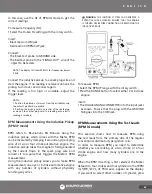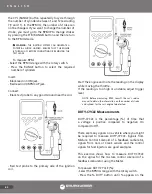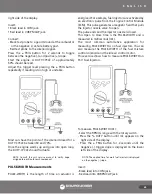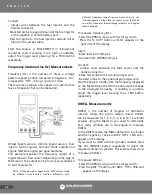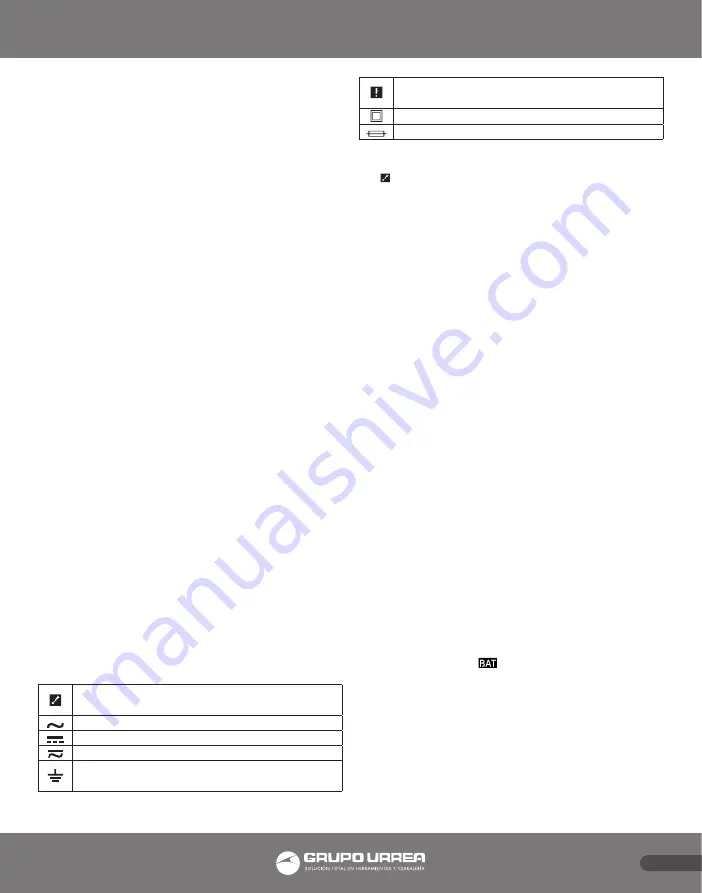
E N G L I S H
51
estar relacionados con varios problemas de manejo
del mismo.
Features.
• Accurate frequency and pulse measurements with
20000 count on the high-resolution 4000 count
display.
• High-speed 41 segment analog bar graph updates
20 times/second – as fast as the eye can follow.
• Accurate automotive electronics test and advanced
measurements with DC/AC Volts, DC/AC Amps,
Resistance.
• Direct reading of DWELL without using DUTY-CYCLE
to DWELL conversion chart when testing electronic
fuel injection, feedback carburetors, and ignition
systems.
• RPM measurement for automotive engines with 1
to 12 Cylinders using the test leads or the Inductive
Pickup.
• MS-PULSE-WIDTH function to test on-time of fuel
injectors of both PFI (Port Fuel Injector) type and TBI
(Throttle Body Injector) type.
• For accurate measurements of RPM, DWELL, DUTY-
CYCLE, and mS-PULSE-WIDTH OF Injectors, the
Meter exercises 7 steps adju/- triggers on
1 to 12 Cylinders, either 2 or 4 Cycle for outboards,
motorcycles and conventional engines.
• Temperature measurement up to 2,498°F (or 1,370
°C) for catalytic converters, fan switch on/off.
• Shielded for testing Marine Engines.
• Capacitance and non-automotive Frequency
measurement.
• Back-light and RS-232C Interface.
International Symbols.
WARNING Dangerous Voltage (Risk of electric
shock).
Alternating Current (AC).
Direct Current (DC).
Either DC or AC.
Ground (Allowable applied voltage range
between the input terminal and Ground.
CAUTION Refer to the user’s manual before
using this Meter.
Double Insulation (Protection Class II).
Fuse.
WARNING: EXCEEDING THE LIMITS OF THIS METER IS
DANGEROUS. IT WILL EXPOSE YOU TO SERIOUS OR POSSIBLY
FATAL INJURY. CAREFULLY READ AND UNDERSTAND THE
CAUTIONS AND THE SPECIFICATION LIMITS OF THIS METER.
• Do not try to measure any voltage that exceeds
1000V DC or 750V AC RMS.
• Voltages above 25V DC or AC RMS may constitute a
serious shock hazard.
• Circuit tested must be protected by a 15A fuse or
circuit breaker.
• Do not attempt to use this Meter if either the Meter
or the test leads have been damaged.
• Use a current clamp to measure circuits exceeding
10A.
• Avoid electrical shock: Do not touch the test leads,
tips or the circuit being tested.
• Select the proper function and range for the
measurement. Do not try voltage or current
measurements that may exceed threratings marked
on the input limit for the switch or terminal.
• Never connect more than one set of test leads to
the Meter.
• Disconnect the live test lead before disconnecting
the common test lead.
Don’t Forget!
• To maintain accuracy of the Meter, replace the
discharged battery immediately when the "Low
Battery" symbols,
, appears on the display of
the Meter.
• Keep the Meter away from spark plug or coil wires to
avoid measuring error from external interference.
• Reference the test leads from the test points before
changing functions to avoid damaging the Meter
when testing voltage.
Содержание UD88
Страница 94: ...94 NOTAS NOTES ...
Страница 95: ...95 NOTAS NOTES ...

